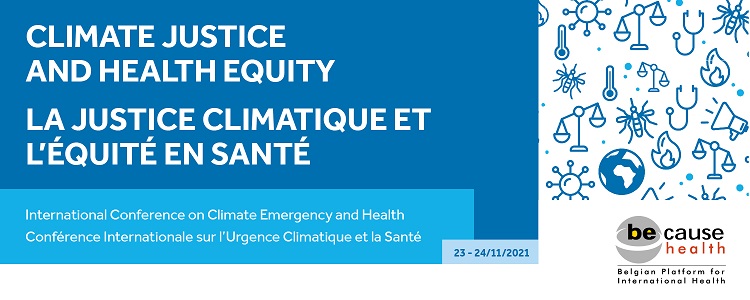PRESENTATIONS
The presentations and the recordings will be uploaded as as soon as possible if available.
23 November 2021: WHAT IS IT ABOUT? PERCEPTION / CLIMATE IMPACT
Opening session
- Welcome and introduction to the programme, by Magalie Schotte (Coordinator Be-cause health, Belgium)
- Keynote: a Planetary Health perspective on the climate crisis, by Sabine Gabrysch (Potsdam Institute for Climate Impact Research & Charité – Universitätsmedizin Berlin, Germany)
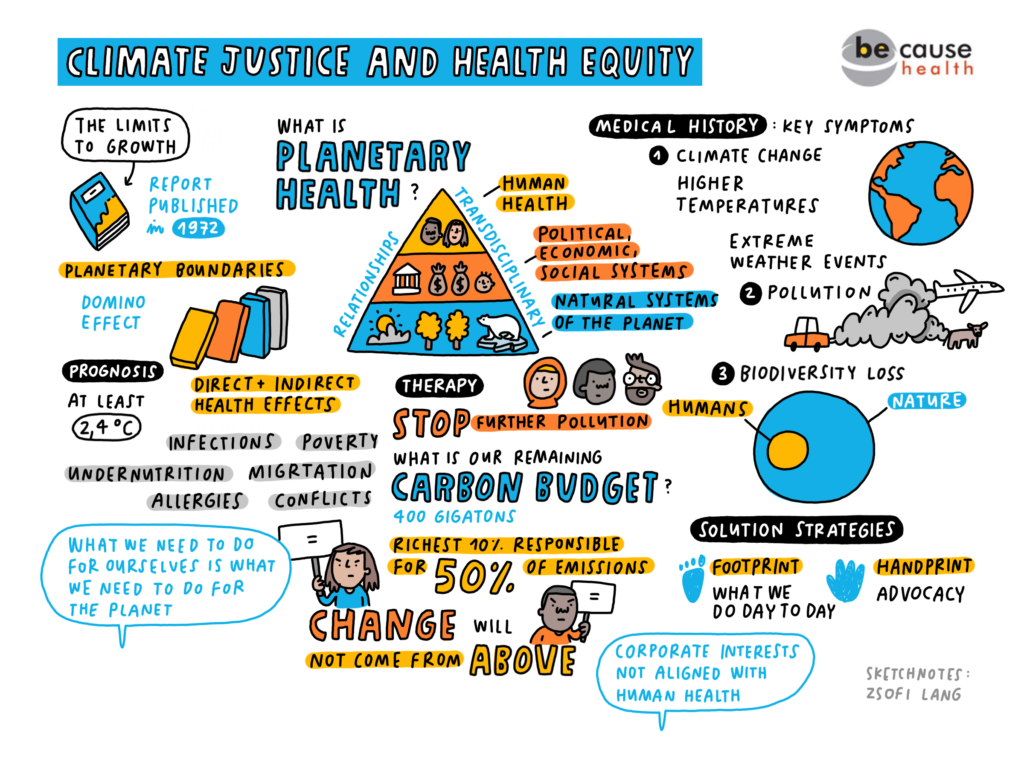
- Keynote: Impact of Climate Change on Infectious Diseases, by Steven Van Den Broucke (Institute of Tropical Medicine, Belgium)
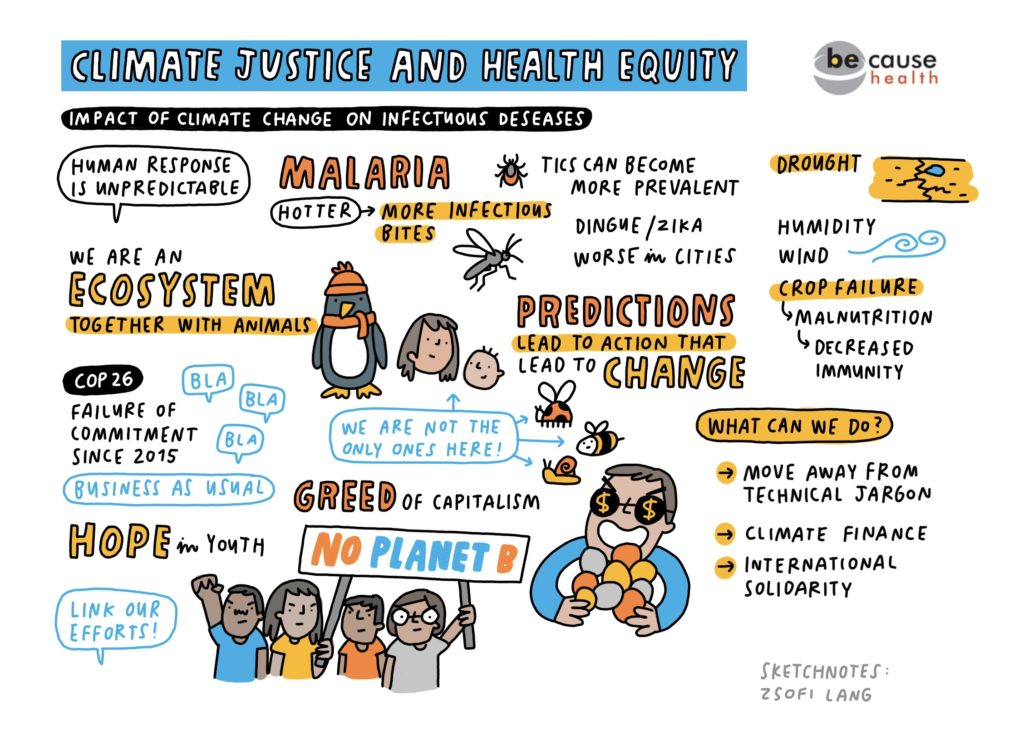
Thematic session 1 – Food security
- Impact du changement climatique sur la santé des populations riveraines : Cas du Village du Bondanga, dans la Zone de santé de Bokongi (RDC), by Juste Momboto Mosoko (Memisa, DRC)
- Nutrition and health as outcome indicators of an integrated and climate sensitive programme: economic development and pastoralism in Tanzania, by Mathias Lardinois (Enabel, Belgium)
- Indigenous Peoples on Sustainable Food Systems and Right to Self-Determination, by Beverly Longid (International Indigenous Peoples Movement for Self-Determination and Liberation (IPMSDL, Philippines)
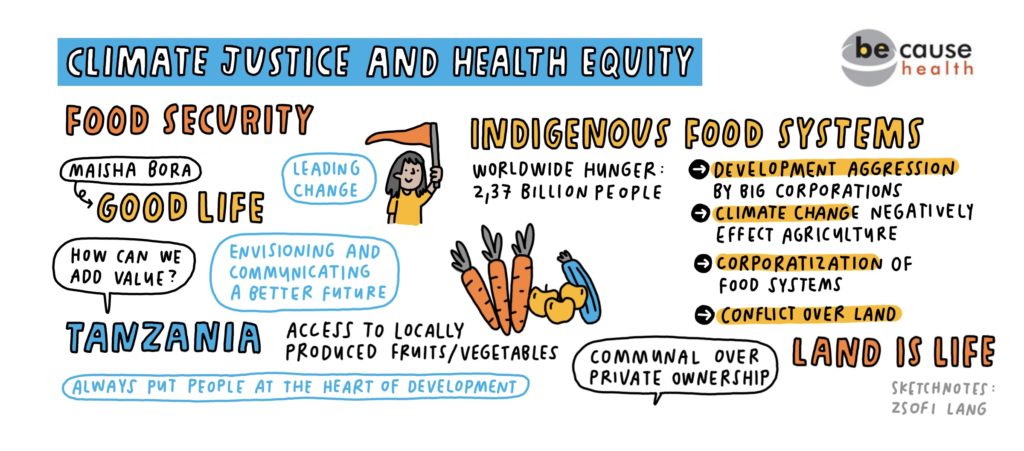
Thematic session 2 – Sexual and Reproductive Health and Rights
- Intersections between climate change and female genital mutilation among the Maasai of Kajiado County, Kenya, by Tammary Esho (Centre of Excellence for Female Genital Cutting/Mutilation (FGM/C), AMREF Health Africa)
- Greening the health system for maternal and newborn health lessons from Bungoma County, Kenya, by Gladys Ngeno (Options, Kenya)
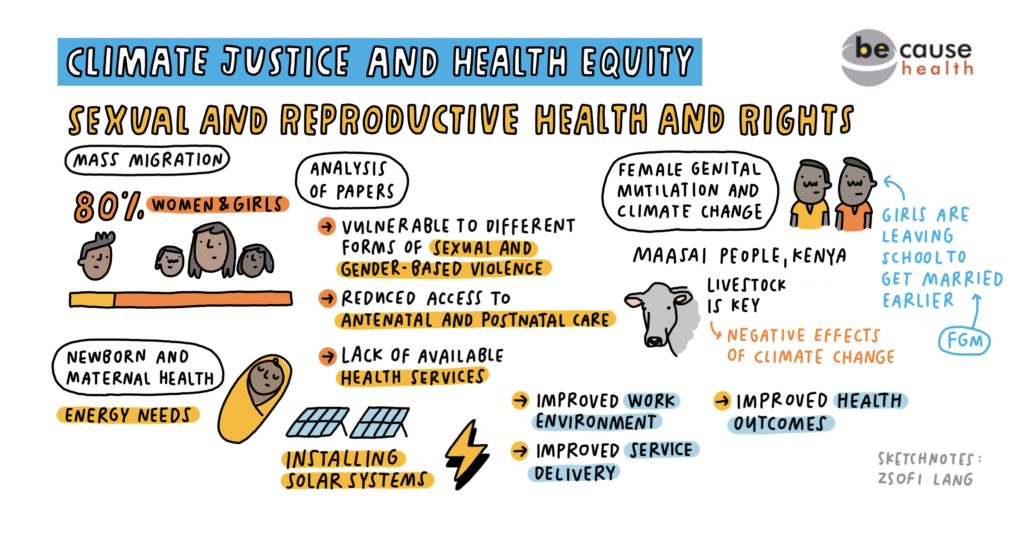
Thematic session 3 – Health & Heat (global)
- Short-term exposure to temperature and all-cause and cause-specific mortality: a study in nine Belgian cities, by Claire Demoury (Sciensano, Belgium)
- The impact of Climate Change on Health in the Netherlands, by Jeffrie Quarsie (GGD Rotterdam – Rijnmond, the Netherlands)
- The experience of heat stress among pregnant and postpartum women and their neonates in Burkina Faso and Kenya: a qualitative analysis, by Fiona Scorgie (University of the Witwatersrand, South Africa)
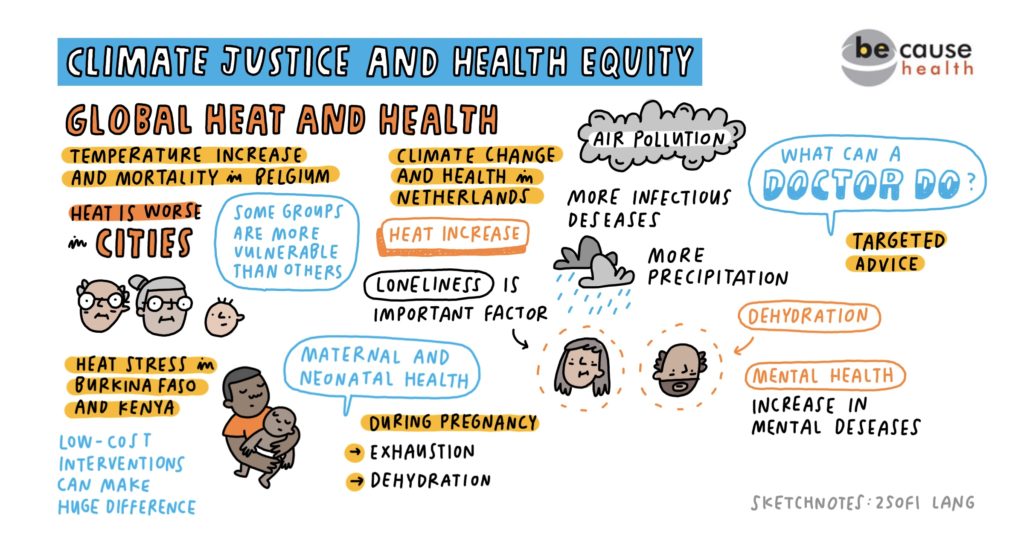
24 November 2021: WHAT CAN BE DONE? PERCEPTION / OPPORTUNITIES
Opening session
Keynote: Engaging with how to achieve healthy societies: insights from India, Latin America and East and Southern Africa, by Rene Loewenson (Training and Research Support Centre, Zimbabwe) – Article BMJ , recording to be added later
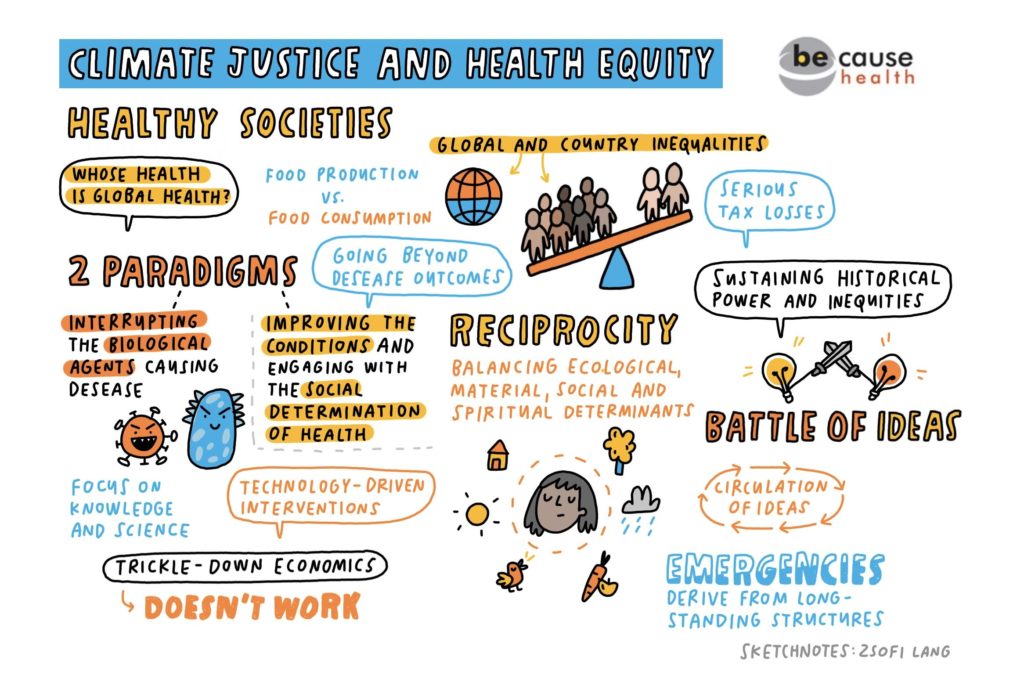
Keynote: Two Communities Struggle for Climate Justice, by Virginia Talens (Climate Change Network for Community Initiatives, Philippines): presentation & recording
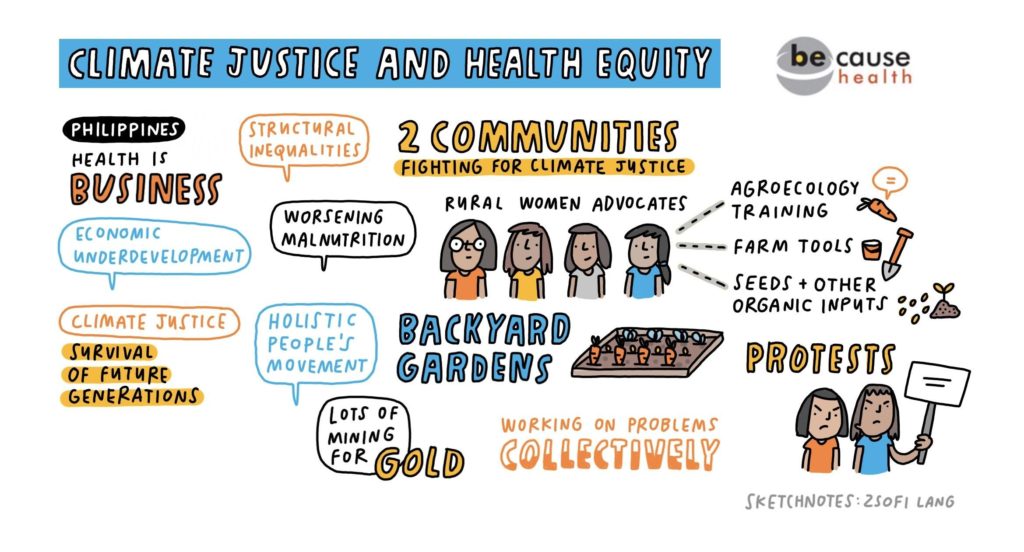
Thematic session 4 – Transformative communities
- Women-led climate justice: Building resilience to a global health disaster, by Nicolette van Duursen (Ipas, the Netherlands) & Jorge Matine (Ipas, Mozambique)
- Community Based Health Programme as health Adaptive Strategy in Climate Emergencies, by Rhoda Dalang (Center for Development Programs in the Cordillera, Philippines)
- Brussels Health Gardens: potential of participatory research method to co-create urban healing spaces, by Vitalija Povilaityte – Petri (University of Mons, Belgium)
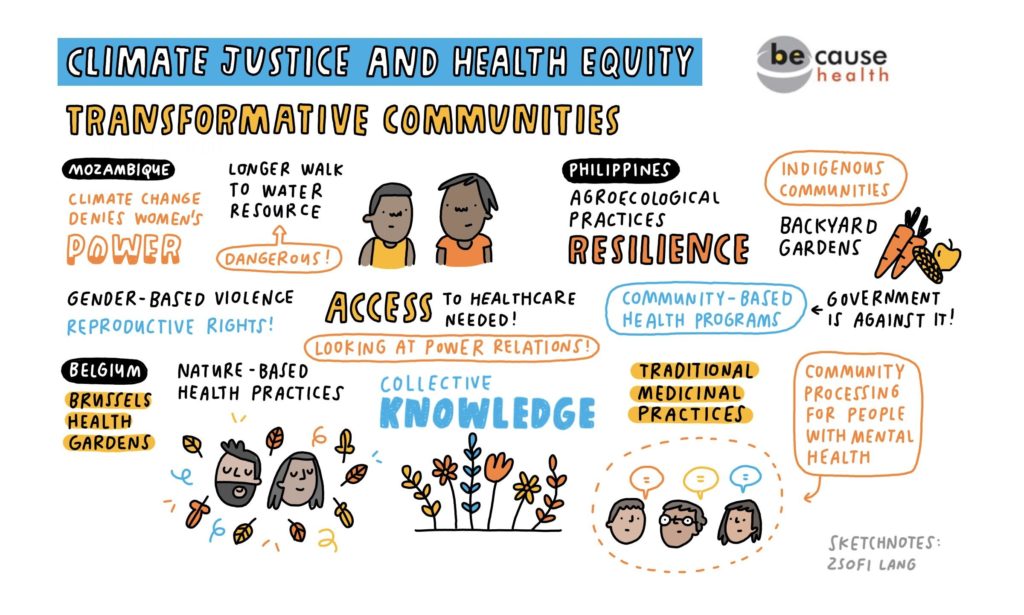
Thematic session 5 – Transformative policies
- Can a climate lens improve humanitarian response to floods? Preliminary results of an analysis by Médecins Sans Frontières “Flood preparedness and response in Pibor, South Sudan”, by Rob D’Hondt (MSF, Belgium)
- Climate change and improving access to drinking water and population health: the case of Mozambique, by Laurence Janssens & Akila Munir (Enabel, Belgium)
- Building a caring world beyond growth – The need for a care-full degrowth transformation for planetary health, by Winne van Woerden (Commons Network Foundation, the Netherlands)
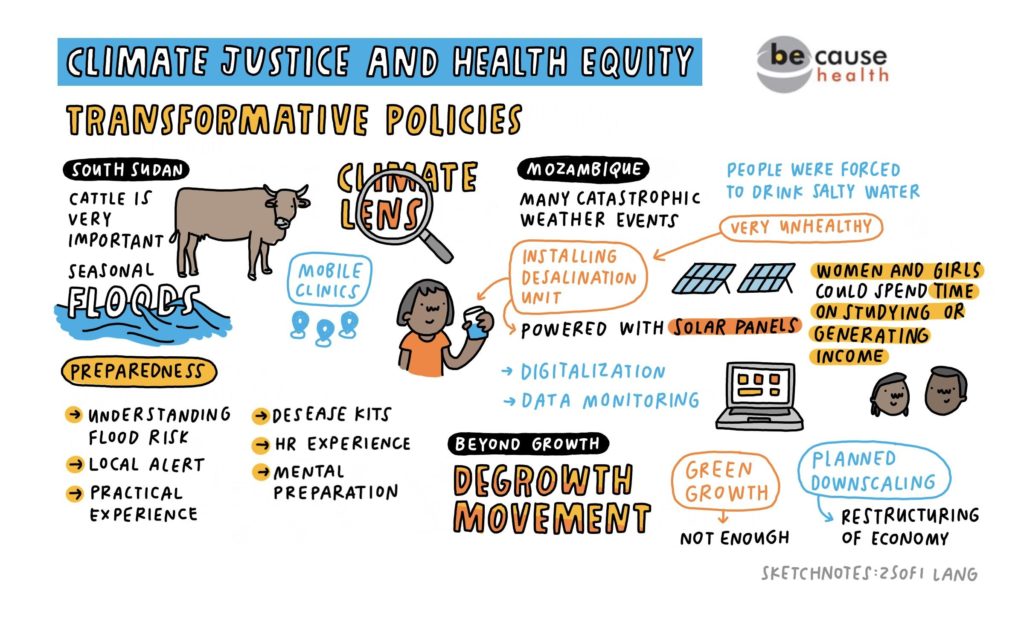
Thematic session 6 – Transformative health systems
- Operationalization of the “One Health” concept through a community assessment, by Louisa ben Abdelhahfidh (Médecins du Monde, Belgium)
- One Health pour renforcer la résilience des communautés rurales, by Issa Ilou (Vétérinaires sans Frontières, Niger)
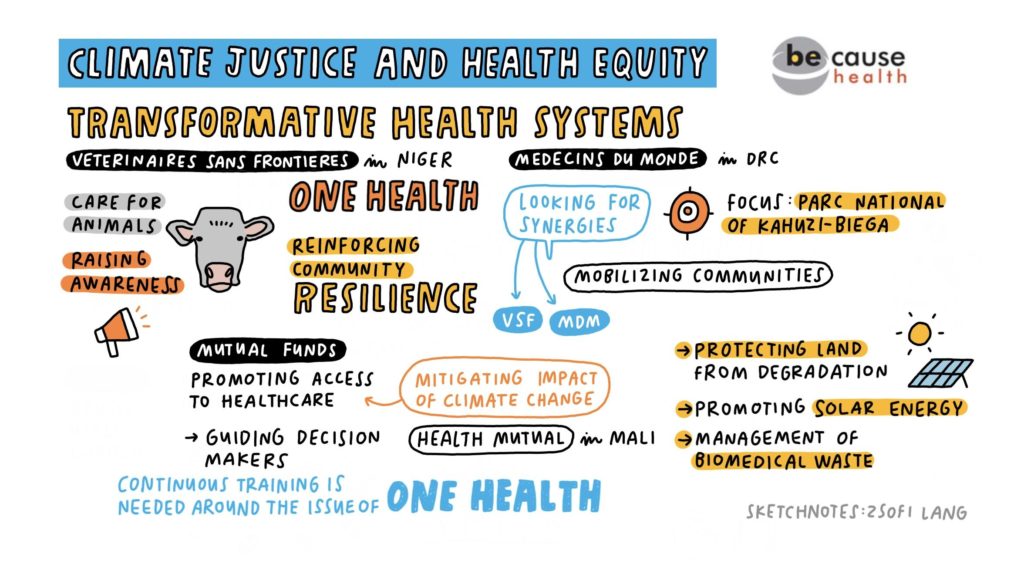
Closing session
- Video message: The climate emergency, its impact to health and health equity and the urgency to act now by Mike Ryan (Executive Director WHO Health Emergencies Programme)
- Video message: Final speech by Meryame Kitir (Belgian Minister of Development Cooperation and Major Cities Policy)
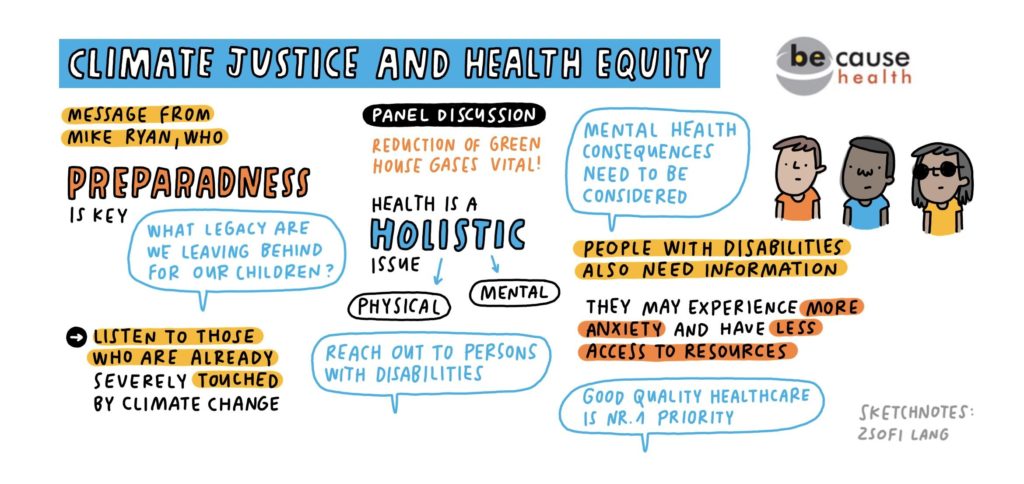
Digital booths
- Hot climate and weather impacts on infant feeding practices in low- and middle-income settings, Jessica Edney (CHAMNHA Consortium, London School of Hygiene and Tropical Medicine, UK)
- Chronic Respiratory Diseases in sub-Saharan Africa: Assessing Evidence for Strategic Responses, GMKu, VCDaSilveira, GKegels, et al. (Institute of Tropical Medicine, Antwerp, Belgium)
Photo Exposition
- Photo essays capturing the Interconnectedness of Global Food Systems and Climate Change, by Sara Dada (University of Dublin, Ireland)

